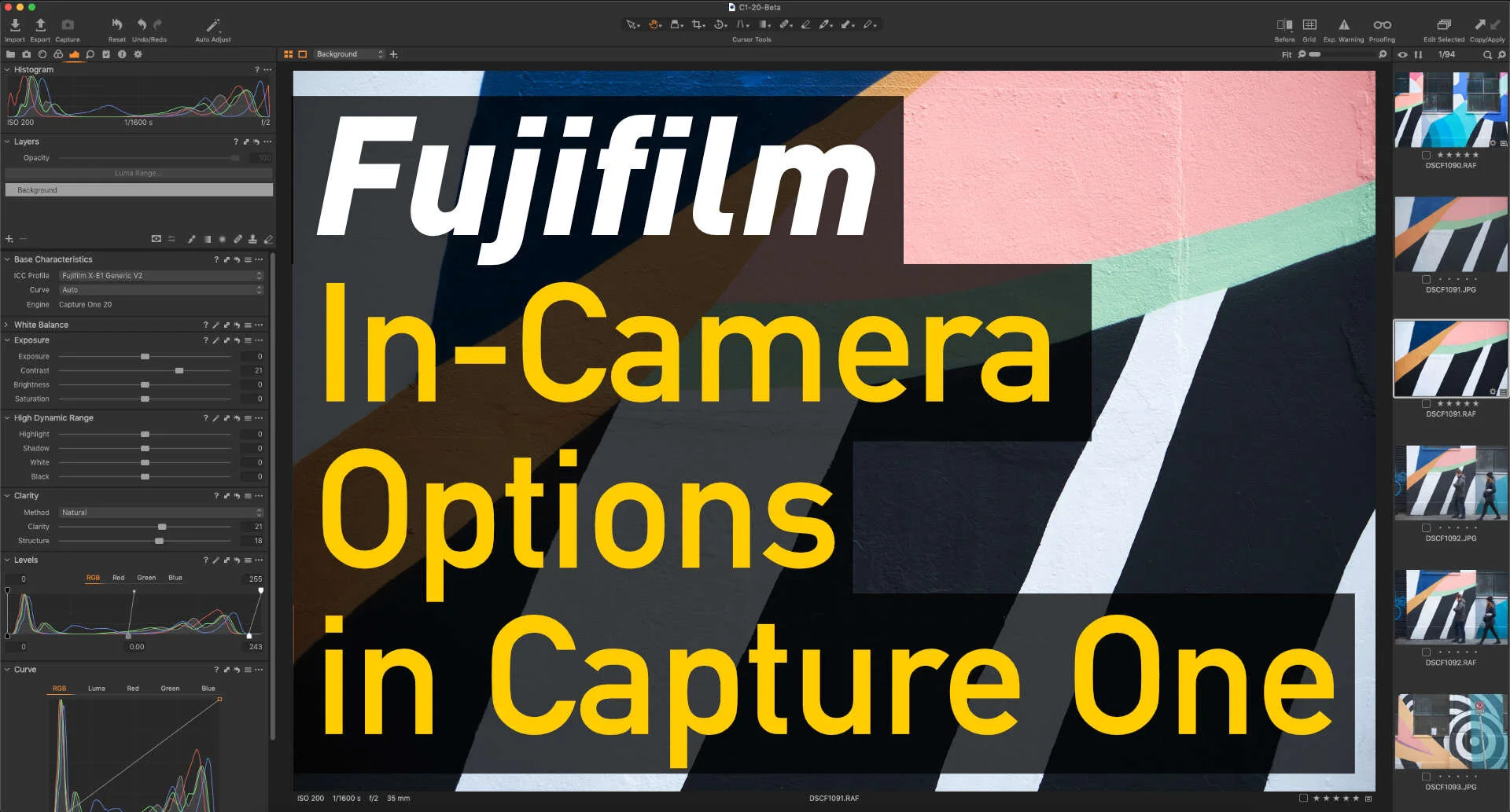Which Fuji In-Camera Options are Directly Supported in Capture One?
When you import Fujifilm Raw files into Capture One, the software will automatically detect the film simulation mode that you used when you shot your images. However, I am often asked what about the other options such as shadow and highlight tone options, sharpening and so on?
Most of the other options are not supported automatically by Capture One. This doesn’t mean that you can’t create those options, but it just means that they must be set manually. Note that I’m not talking about exposure settings here. They will of course be carried over, just like they are with all RAW files. I’m talking about the more specific Fuji in-camera parameters. Here’s a quick table of the various in-camera options and what it means:
| In-Camera Option | Supported on Import in Capture One? | Notes |
|---|---|---|
| Film Simulation Modes | Yes | Automatically detected |
| Sharpening Settings | No | Must be set manually |
| Noise Reduction Settings | No | Must be set manually |
| DR Modes | Partially | Will correct for brightness, but doesn’t automatically include recovery |
| Shadow and Highlight Tone | No | Must be set manually |
There’s one of these options that bears further explanation. The DR modes (DR200, DR400). The way these work in-camera is that they lower the exposure on capture, and then in post they compensate but compress the highlights to retain more information. This happens automatically in-camera when you shoot Jpeg and you never notice it. If you shoot RAW, Capture One will compensate for the way the camera underexposes, and you will see the correctly exposed image, but it doesn’t compress the highlights.
Some earlier RAW converters didn’t do this properly, and if you used the DR modes you would get an underexposed image when you opened the RAW file. Luckily this isn’t an issue any more for most RAW conversion software.
If you want to learn more about how to manually set the other options to match the in-camera settings, I cover most of these in my eBook on processing Fujifilm RAW files in Capture One.
Just one other note. This applies whether you are using the Fujifilm or Full version of Capture One.
Join our Facebook Group
If you want to discuss anything you’ve read here on my website, or saw on my youtube channel, or if you want to share images you’ve created using any of my techniques or presets, then I’ve started a new Facebook Group just for that.
Help Support the Blog
This blog is pretty much my day job now and I work to bring you my own take on photography, both tutorials and tips, as well as inspiration from my own art. Running all this isn’t cheap, and so If you like what you see and you want to help keep this all going, I support this work, and my YouTube channel entirely either via sales of my eBooks and Lightroom presets, or the kind support of my readers. (I also have some affiliate ads).
You can see more of my photography and keep up to date by following me on social media and checking out my other websites:






